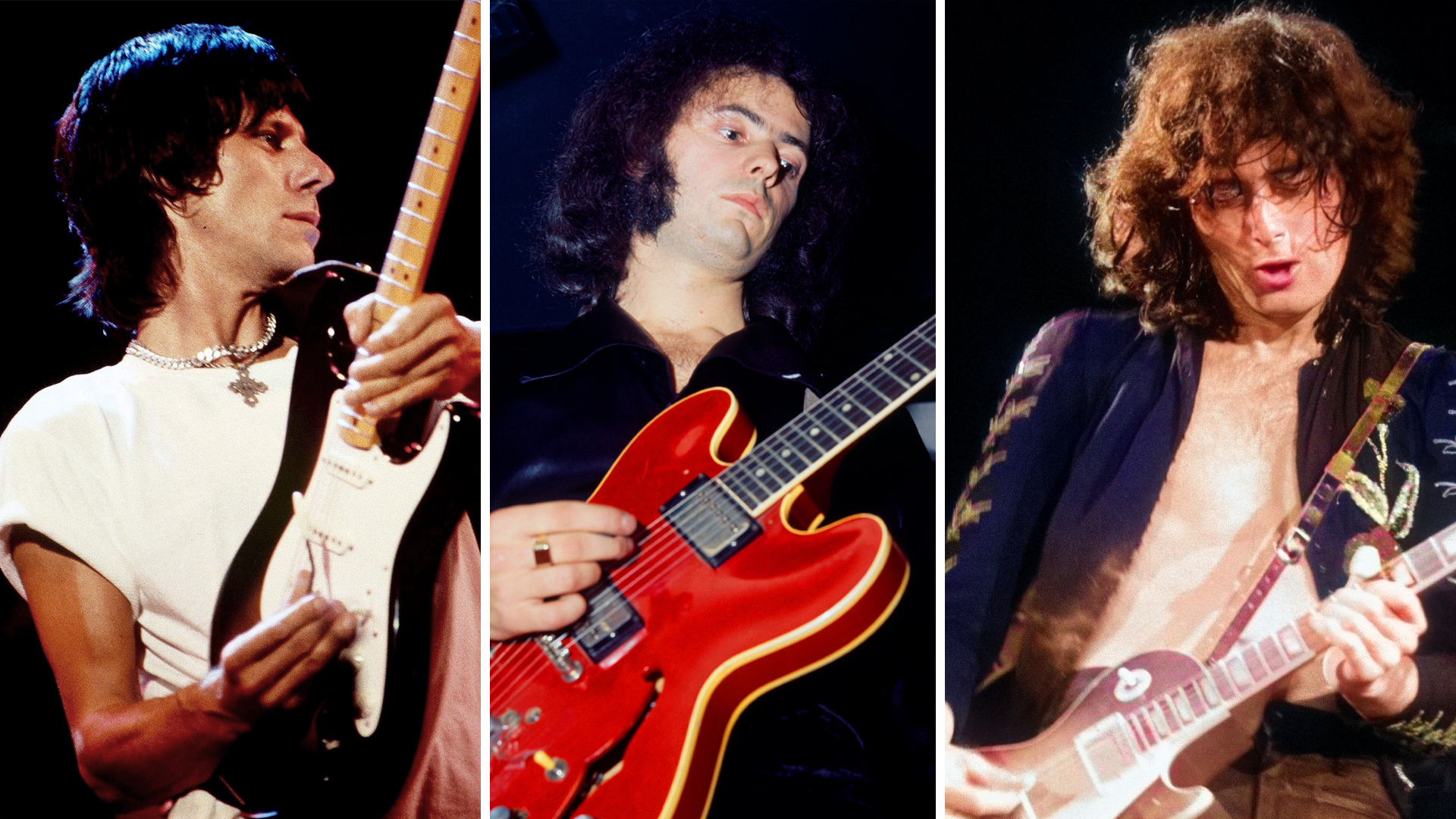“I knew he was going to be somebody then. He had that star quality”: Ritchie Blackmore on his first meeting with Jimmy Page and early recording sessions with Jeff Beck
Today, the former Deep Purple guitarist is full of praise for his compatriot, but a 1975 interview suggests a slightly different narrative

All the latest guitar news, interviews, lessons, reviews, deals and more, direct to your inbox!
You are now subscribed
Your newsletter sign-up was successful
There’s a great deal of symmetry to be found in the early years of Jimmy Page and Ritchie Blackmore. Both would leave behind their small village of Heston in Middlesex to become two of British rock and roll’s most prolific guitar players.
Once they’d mastered their craft enough to join bands, each cut his teeth in similar circles. And as Blackmore reveals, he knew Page was destined for greatness when they met some seven years before Led Zeppelin’s 1969 debut album.
Discussing their shared early influences in the 2015 documentary The Ritchie Blackmore Story, Blackmore says it was the guitar-wielding sidemen, rather than the star singers, who grabbed their attention from the very beginning.
“When I was 11 it was about Elvis Presley and Buddy Holly,” he says, “and they had brilliant guitar players. You had Scotty Moore [in Elvis’s band], Buddy Holly played, and you had Cliff Gallup playing for Gene Vincent. We all idolized them. It was a very exciting time.
“I think at the age of 11 or 12 we all had first our acoustic guitars and then later on we got our electrics that we’d plug into the back of a two-watt radio,” he recalls.
“But it is strange how we all come from a similar area. Jimmy Page was from the same village, it wasn’t even a town, and Clapton was a few more miles out.”
Blackmore's first Fender Stratocaster actually belonged to Eric Clapton, whose roadie sold it to him for £60 — about $523 today — in 1969.
All the latest guitar news, interviews, lessons, reviews, deals and more, direct to your inbox!
Jeff Beck meanwhile was going through the same motions at a similar age. He idolized Gallup above all others. When Guitar Player presented him with one of his hero's picks in 1993, Beck exclaimed, “I'm having a religious moment.”
As with Beck and Clapton, that symmetry could be extended even further, but it was Page that Blackmore met first.

“I met Jimmy Page in ‘62 when I was playing with a band called Screaming Lord Sutch & rhe Savages,” Blackmore explains. “We used to dress up like cavemen. I was thin as a rail at the time, so I was totally embarrassed to have this loin cloth on and all my bones showing. I was 16 or 17, and all the rest of the guys in the band were built like Charles Atlas.
“We played with a band called Neil Christian and the Crusaders, who I played with later, and [Jimmy] was playing his Gretsch guitar,” he continues.
Interestingly, Jimmy Page’s first proper guitar is believed to be a Gretsch Country Gentleman, which he used throughout the ‘60s, but it was cast aside by the time his recording career began. He'd switched to a Telecaster for his time with the Yardbirds.
“I knew he was going to be somebody then,” Blackmore remembers. “Not only was he a good guitar player, he had that star quality. There was something about him he was very poised and confident, but not arrogant. So I thought, He's going to go somewhere that guy, he knows what he's doing.
“He was way ahead of most guitar players and he knew he was good too. He was very comfortable within himself.”
Yet, his comments contradict the scathing retorts he had for his peers in Page and Clapton some 40 years earlier.
In March 1975 he was the cover star for International Musician & Recording World magazine. Speaking to American producer/guitarist Jon Tiven for the article, Blackmore was short on compliments for the pair.
“I'm not too struck on Jimmy Page and Eric Clapton," he said. "I never saw what was in Clapton at all.” However, it could be easy to dismiss those comments as ways of shooting down the competition. Perhaps Blackmore possessed an arrogance which he didn't reckon Page had.
That being said, Beck didn't find himself in the firing line.
“I like Jeff,” he told Tiven. “He's my favorite guitarist... a very natural guitar player. Being a guitarist, I obviously know a lot of tricks of the trade, but whenever I watch Beck I think, How the hell is he doing that?”
Ironically, when the pair did play togeher in those embryonic years, it was Beck doing the hand watching.
“In ‘64 or '65 I did a couple of sessions," Blackmore recalls. "Actually, one was with Jimmy Page, and one was with Jeff Beck.
"Jeff took the solo and everybody was raving about the solo, and I thought, Yeah that was a really good solo. But I noticed when I was playing that he was looking at my hands.
"I'm like, ‘Why are you looking at my hands?’ And he goes, ‘I don't know where we are; I'm just following your chords.’”
Ritchie Blackmore turned 80 years old yesterday. To celebrate, Guitar Player reached into the archives to resurrect his 1996 interview with the magazine, in which he spoke passionately about why the world needs more guitarists like Django Reinhardt.
A freelance writer with a penchant for music that gets weird, Phil is a regular contributor to Prog, Guitar World, and Total Guitar magazines and is especially keen on shining a light on unknown artists. Outside of the journalism realm, you can find him writing angular riffs in progressive metal band, Prognosis, in which he slings an 8-string Strandberg Boden Original, churning that low string through a variety of tunings. He's also a published author and is currently penning his debut novel which chucks fantasy, mythology and humanity into a great big melting pot.


